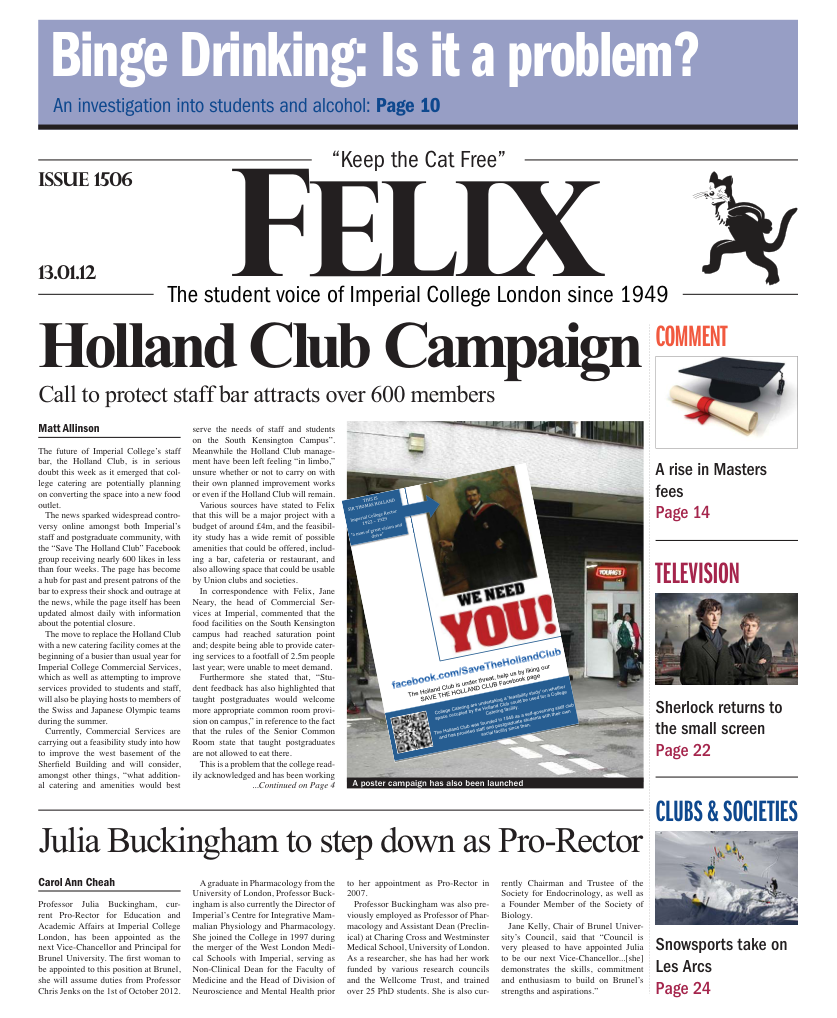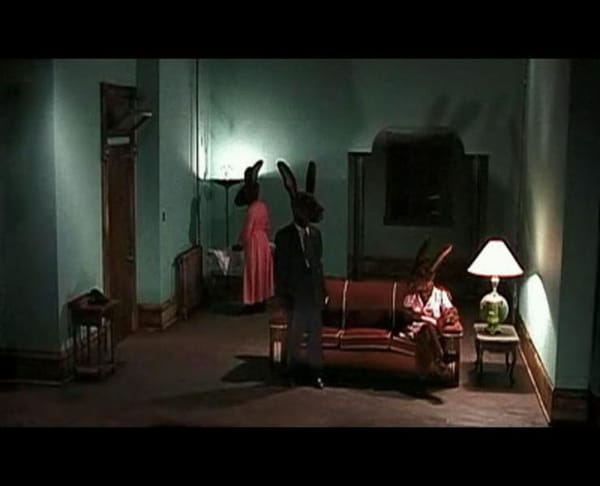Mystery over Masters fee rises
Former ICU President Alexander Kendall on the affordability of Imperial's postgraduate degrees - are the new price hikes justified?

Since the government cut funding for higher education and Undergraduate fees were forced up, much has been speculated about the corresponding rise in Postgraduate fees. Though technically the funding from the Government for Postgraduate fees was also cut, since it is lumped in with the total Undergraduate teaching grant it is hard to prise them apart and the two may in fact be inseparable. Across the country, we began to hear of price rises for Masters courses. The UK average is currently a 24% increase and as a student I had heard nothing from the College, the Union or Felix about any rises at Imperial until a lecturer remarked that they were going up to £9000. I decided to investigate.
The Imperial website is a good place to start, but the course fees in the Postgraduate prospectus are still those from 2011/12. You would think from this that the fees for this year’s entry have yet to be decided, but this is far from the truth. The fees are in fact published on the Registry section of the website. Why they haven’t been changed in the prospectus is beyond me. Having a closer look reveals a very strange system of increases. A lot of courses have not gone up at all, or have just gone up with inflation. Medicine is a good example of this. There are a few increasing at the national average such as Bioengineering and Computing at 25% and 22% respectively. Whether this is justified or not is still a point of contention. Another strange side of the Registry figures is that, next to the 2012/13, they list the ‘2011/12 figure’; the problem is that these figures are frequently wrong, as anyone can see by comparing the Registry page with the prospectus.
Then comes the shocker: the suite of 19 Life Sciences Masters degrees, which have had their costs increased by 78.2% from £5050 to £9000. Why?! Yet again, since the Union didn’t know about this, and we haven’t seen anything from College, I’m going to make some assumptions based on how I understand the system. If these are wrong then I welcome clarification. It is time that this was challenged though, as I know from an academic, whose name I won’t mention, that these fee rises were known about in September.
Imperial as a University sets a ‘baseline’ Masters cost which is the minimum anyone will have to pay. The College baseline is (from what I can work out on the Registry website) £3825. From then on the Faculties can decide to increase this by however much they want, as there is no government cap on Masters fees. The Departments and Course Directors apparently have no power over the price of their courses. The Faculty of Natural Sciences has therefore decided to increase these fees. What are the possible reasons for this? Fee s can increase for four reasons: to dramatically increase the quality of the course, to cover some new costs, to replace lost funding from another source (as with Undergraduate fees) or to provide bursaries. I cannot see how any of these reasons can be justified here.
An increase in the quality or costs of the course would surely be something the Course Directors have an influence over and so they subsequently would advise that the fee would have to go up. But Course Directors were told how much their fees would have to increase by the Faculty, which has no role in the quality or running costs of individual courses.
The drop in funding from another source could correspond to the reduction in the government teaching grant. But if this is being taken into account then we should see an equal increase across all Masters courses, which we do not. Regarding bursaries for postgraduates, I have heard rumours but nothing concrete. More bursaries would be welcome, but surely if this is the reason for the increase then it still doesn’t explain why such a large increase is happening in such a targeted way.
What effect will this have? There is little support from the government and the University, who provide for a select few very needy and intelligent students doing Masters. Most students have either saved up for the course and accommodation costs or have the Professional Development Loan, a commercial loan provided by either Barclays or the Co-op for up to £10,000. Though this is commercial, the government pays the interest during your time of study, but you have to begin paying it back, whether you have a job or not, within a month of finishing. Fair enough, you may say. The problem arises because this £10,000 maximum amount is not set to increase. Masters fee increases, when not combined with loan increases, simply price people out completely. This is not just a case of more debt but of a simple inability to pay. Imperial has also now introduced a deposit system for Masters – 10% as soon as you accept your place. Many people cannot afford to pay £900 several months before getting any loan or financial assistance.
The financial reasons for this and the potential solutions have yet to be thrashed out. What is unacceptable is Imperial’s secrecy over these fee rises. It is bizarre that no one seems to know about this and it isn’t being talked about. Course costs should be transparent. The Faculty of Natural Sciences needs to explain why it has imposed a 78% rise on 19 Masters when costs for other Masters in the College have remained the same or gone up by only a few percent. Other Faculties should also explain any rises above inflation. The College needs to explain why some Masters are going up and some not, and whether or not it sees this as fair. The fact that the fee rises were decided by September and yet the Postgraduate prospectus has, to date, not been updated is unacceptable.







